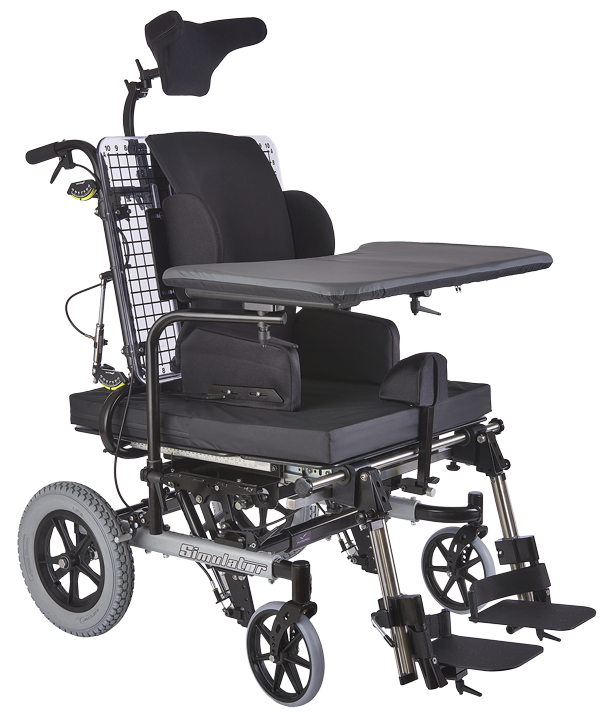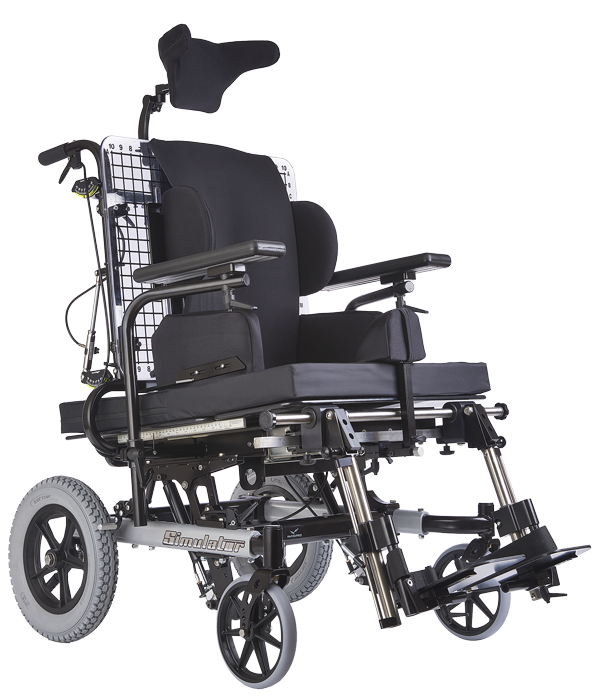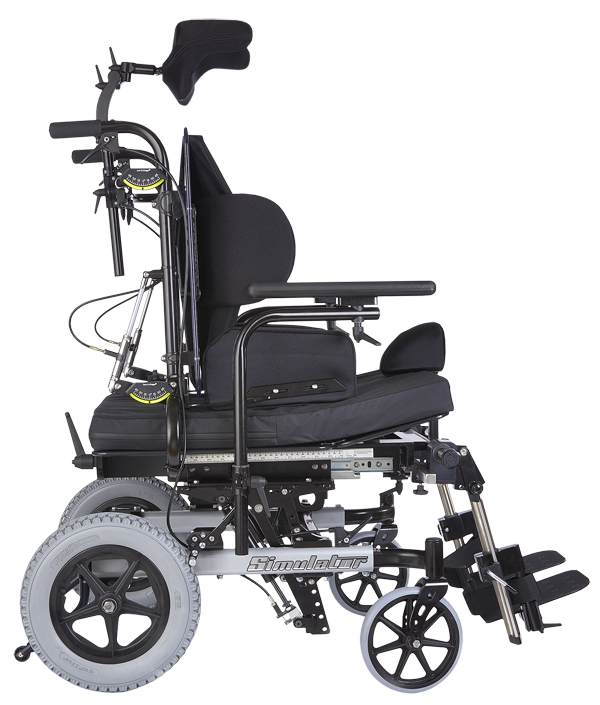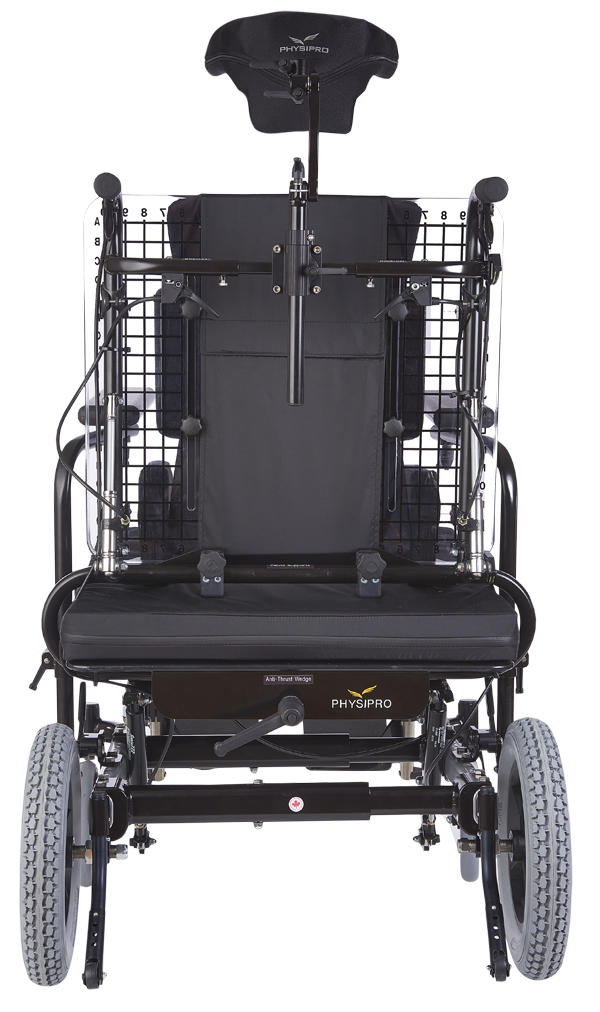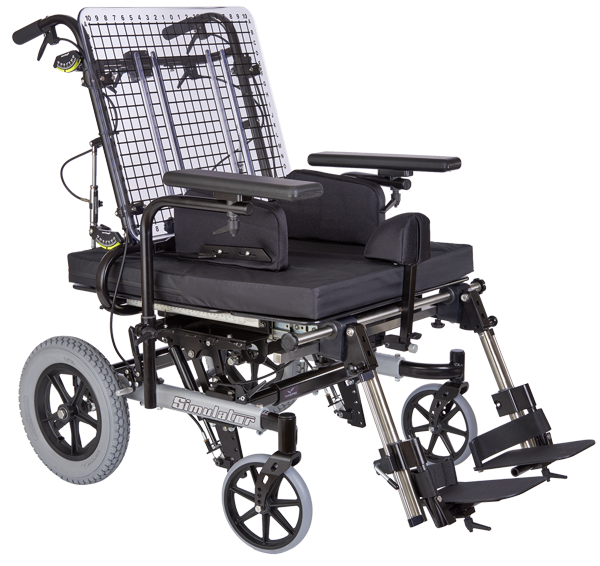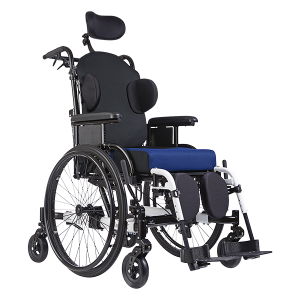The Simulator greatly helps the rehabilitation specialists to offer assistance meeting the needs of their customers. It is used to accurately establish custom manufacturing criteria of a posture assistive device. Due to its comprehensive adaptability, this tool can simulate various adjustments as well as component interaction. The result of these specifications leads to the manufacturing of a customized technical aid.
The Simulator is adjustable for adult and pediatric, all settings are adjusted quickly without tools, making it a highly functional evaluation instrument.
It is possible to install three types of backrest:
1) tension adjustable backrest (adult or pediatric);
2) rigid backrest that allows for the use of foam in place and vacuum molding bags;
3) rigid gridded to quickly calculate a person’s shoulder and thorax width.
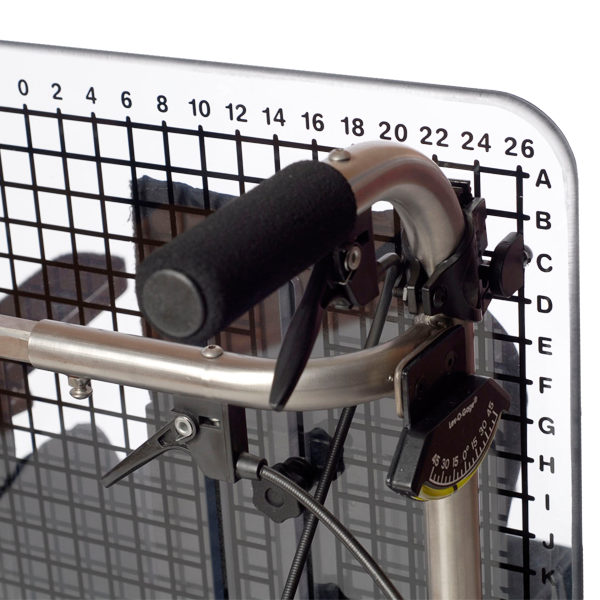
Measurement Indicator System
An ingenious measurement indicator system allows for quick and efficient calculating of person’s shoulders and thorax
width. It also allows for establishing the location of thoracic supports (height and width).
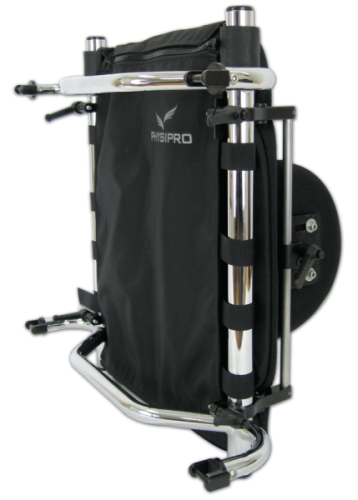
Tension Adjustable Backrest
The 1″ individually adjustable straps can be tightened or loosened as needed. This makes it possible to continuously adjust the backrest to the most appropriate position .
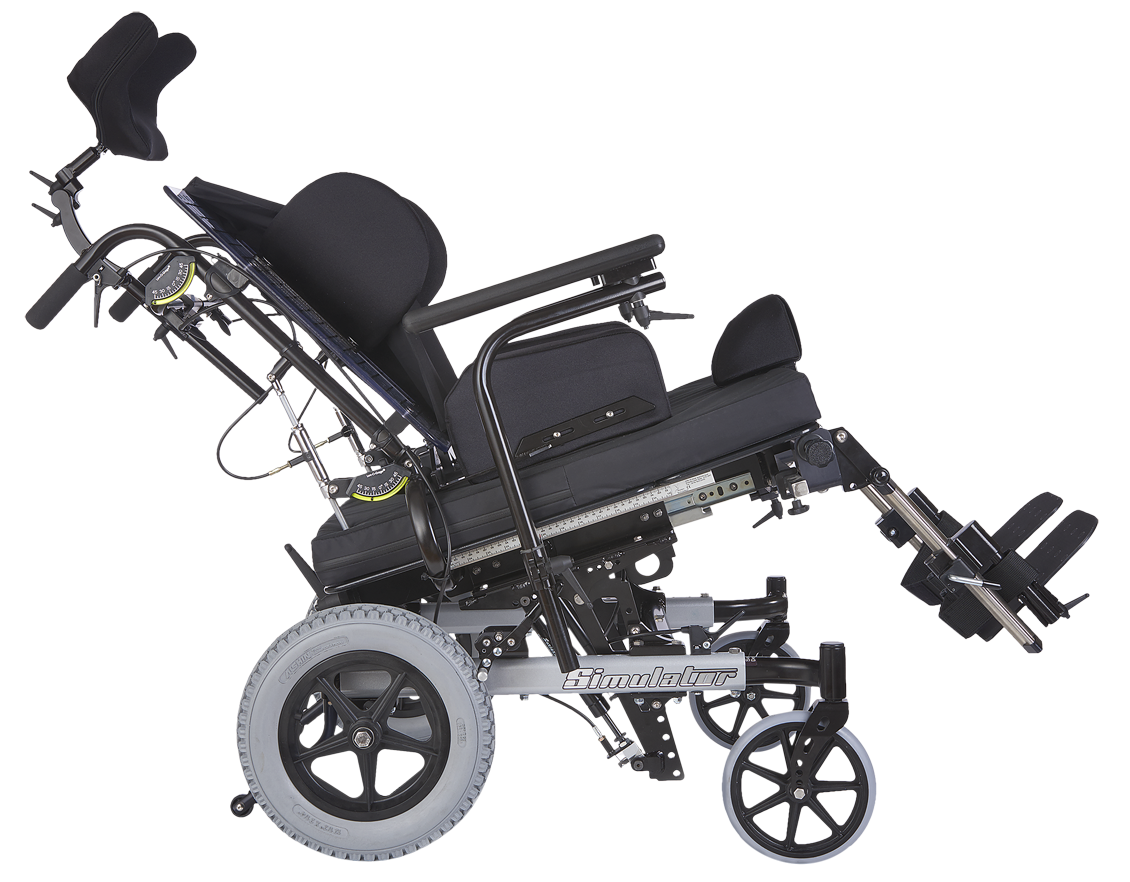
Tilt-in-Space and Inclination
The tilt-in-space is operated by the handles located on the headrest support tubes. A goniometer located on the stabilizer bar measures the tilt angle.
θ Max: 30° positive (backward)
θ Min: 10° negative (forward)
The backrest can be adjusted from 85° to 150°.
Foam-In-Place Seating (FIPS)
Foam-In-Place Seating (FIPS) is an assistive seating technology for clients with complex positioning needs such as fixed deformities or excessive tone problems. The Simulator backrest is also compatible with vacuum molding bags.
Openings in the Simulator’s backrest allow easy access to the molding bag, so it can be adjusted to the user’s unique shape.
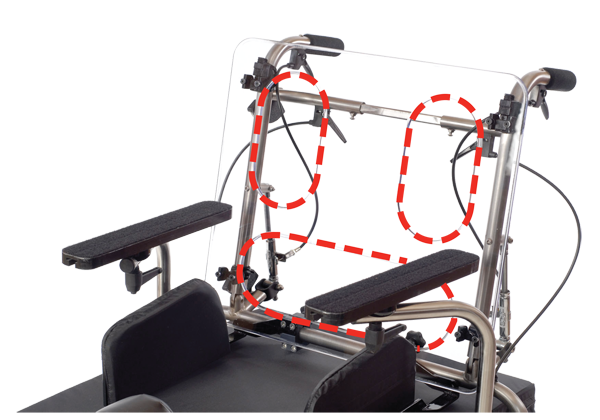
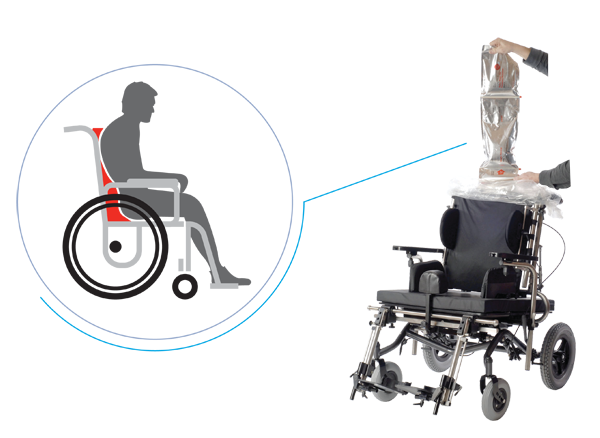
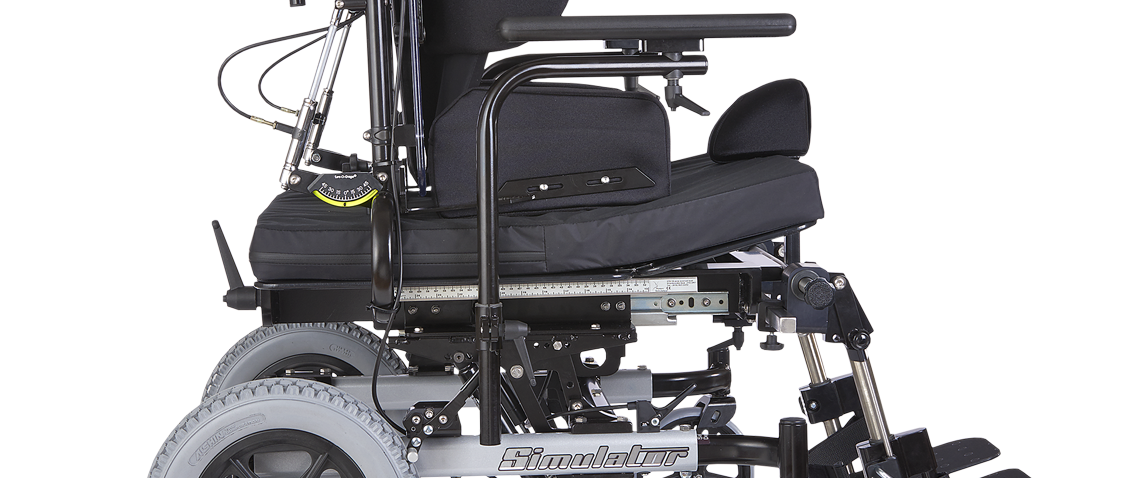
Anti-Thrust Wedge
This system allows the user’s knees to be raised, providing pelvic tilt. Adjustable from 0 to 2½”.
Specifications
| Tilt-in-space | 10° to 30° |
| Backrest inclination | 85° to 150° |
| Seat depth | 14″ to 25″ |
| Anti-thrust wedge | 0″ to 2,5″ |
| Lateral pelvic support | 7″ to 21″ |
| Laterals | Lateral Adj. 8,5″ to 20″ Height Adj. 11″ to 18″ |
| Headrest | Height Adj. 8″ Lateral Adj. 6″ range (3″ to the left and right) Depth Adj. -4″ to 5″ |
| Armrest | Height 0″ to 16″ Width 8″ to 21″ 10″ range |
| Footrest | Height 13″ to 21″ Width 12″ to 21″ Angle: 60°, 70° and 90° |
| Weight Limit | 450 lb |

